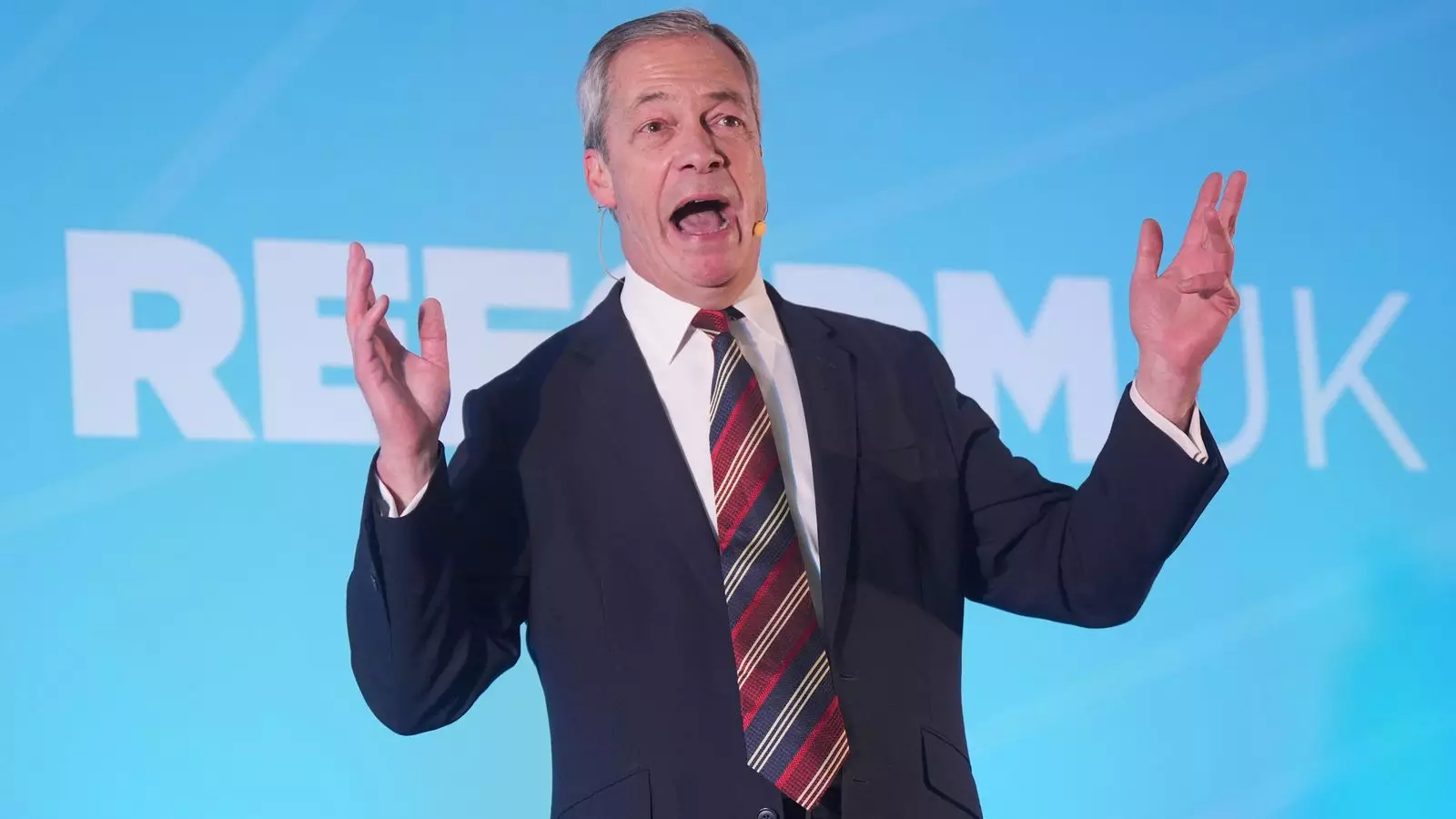Nigel Farage, a polarizing figure in British politics, has found himself in the public’s eye once again, this time due to comments made by tech mogul Elon Musk. Farage recently addressed Musk’s assertions regarding his leadership capabilities of Reform UK in an interview with Sky News. The confrontation raises questions not only about Farage’s political aspirations but also about the dynamics between celebrities and politicians, as well as the implications of political endorsements from influential figures like Musk.
On January 5, Musk delivered a candid criticism to Farage via social media, stating, “The Reform Party needs a new leader. Farage doesn’t have what it takes.” Farage, known for his unapologetic demeanor, was quick to defend himself, asserting that he is “not to be pushed or bullied” by anyone, even if that someone is one of the wealthiest individuals in the world. This situation underscores the vulnerabilities that even seasoned politicians face when placed in the crosshairs of contemporary scrutiny, especially from high-profile figures who have massive platforms.
Farage, who has forged his political path through controversy and confrontation, expressed that he has maintained a communication line with Musk since the remarks were made, characterizing their relationship as one of friendship despite the criticisms. He further noted that disagreement is part of any relationship, especially one punctuated by their differing views on controversial subjects like Tommy Robinson, a figure known for his polarizing stance on immigration.
Robinson, who has garnered attention both for his activism and his legal controversies, has become a divisive topic even within Reform UK. Farage’s disapproval of Musk’s support for Robinson highlights a broader philosophical rift in politics today—where alignment on specific issues can fracture alliances, even among those with otherwise similar goals. Farage’s insistence that Robinson and his class of supporters are not welcome in his party speaks volumes about the ideological path he intends to pursue and reinforces his commitment to moderate, mainstream politics.
This articulation of ideological boundaries demonstrates Farage’s awareness of the need to broaden his party’s appeal, especially amid rising dissent both from his own ranks and from external critics. By rejecting associations with figures like Robinson, Farage attempts to position Reform UK as a legitimate force within the British political landscape, steering clear of the far-right entanglements that could derail his ambitions.
Despite this contentious backdrop, Farage remains optimistic about Musk’s ongoing support for Reform UK. The potential for financial backing from such a prominent figure could serve as a crucial lifeline for the party, which is in the midst of attempting to establish itself as a viable alternative in a fracturing political environment. Musk’s previous favorable comments about the party reveal an interesting relationship between finance, influence, and political viability—one that can significantly shape the success of Reform’s mission.
In the same vein, the topic of devolution introduces another layer of complexity to Farage’s agenda. His vocal criticism of the Labour government’s devolution plans, which he claims are more about postponing elections than genuine reform, positions him as a champion of democratic processes. By arguing that proposed changes threaten local governance and potentially curtail electoral participation, Farage taps into a broader narrative about political accountability and transparency. His claims about “dictators canceling elections” serve to evoke emotional responses from constituents wary of overreach by the government.
Furthermore, Farage addressed concerns about a supposed toxicity surrounding those who support Reform UK, asserting that any reluctance among members to speak publicly is emblematic of an “institutional bias” against conservative positions. This resonates with a growing sentiment among many on the right who feel marginalized or silenced in public discourse. Farage’s framing of this issue underscores the ongoing culture wars that play out within the UK and beyond, as political identities become increasingly entrenched and polarized.
Farage’s recent interview offers a microcosmic view of the current state of political discourse, laying bare the challenges faced by leaders who grapple with dissent, both internally and externally. His refusal to back down in the face of criticism serves as a testament to his character while revealing his intentions to reposition Reform UK within the crowded political arena. Whether he succeeds will depend on how well he can navigate the complexities of modern politics, celebrity endorsements, and grassroots sentiments, ensuring that he remains relevant in a rapidly evolving landscape.

